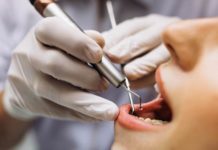As we grow old, our bodily functions slow down and the eyesight does not remain unaffected. The lens of your eye becomes thinner over time and loses its flexibility, resulting in blurred vision. This is why it becomes harder to focus on nearby objects, creating the need for bifocals. Also, aging brings a gradual decline in moisturizing tears which explains why dry eye is a common condition among many older adults.
If you are suffering from frequent headaches or constantly straining your eyes to see things better, your eyes could be experiencing stress. However, eye strain is largely reversible if you can follow these 5 simple tips.
5 Simple Tips To Improve Eyesight
1. Limit the Use of Technology
An effective way to significantly lessen the impact of digital stress on your eyes and keep them healthy is to consciously reduce your exposure to the harmful blue light emitted by your smart phones, tablets, laptops and desktops. Technology has become an inevitable part of our lives but this high-energy visible light deeply penetrates your eyes leading to age-related macular degeneration, retinal damage, and other vision problems. This HEV light is also capable of lessening the production of melatonin which eventually disrupts your sleep.
Fortunately, you can easily avoid digital eye strain by limiting your exposure to the screen and following the 20-20-20 rule. Take frequent breaks at work and after every 20 minutes, stare at some object that is located at least 20 feet away from you for 20 seconds. Increase the size of the text so that you don’t need to strain your eyes when reading or writing and shut down all your gadgets at night so that your eyes get adequate time to relax before you fall asleep.
See Also: 9 bedtime habits you should always avoid
2. Blink Your Eyes More Often
We all blink naturally but doing it consciously and more frequently when your eyes feel tired will moisturize your eyes and revive them. When you are staring at the computer screen for long at work or spending a lot of time outdoors, you tend to blink less than required so remind yourself to blink more often whenever your eyes are feeling tired, dry, or causing any sort of discomfort.
3. Maintain a Healthy BMI
Obesity affects your eyesight far more than your blood sugar levels, blood pressure or your heart rate. Research has confirmed that overweight people are at an increased risk of developing age-related macular degeneration and cataracts, in comparison to those who have an ideal body weight. Unfortunately, it is not possible to prevent or reverse cataracts by losing those extra pounds.
Studies have also revealed that being overweight leaves you susceptible to glaucoma because obesity is known to increase the build-up of eye fluids due to high cholesterol levels, increased insulin resistance, increased blood pressure and poor diabetes control.
See Also: 6 regular activities to burn calories naturally
4. Limit Your Exposure to UV light
Studies also suggest that people with blue eyes and a fair complexion are highly susceptible to developing cataracts. A research conducted in 1998 by Johns Hopkins established a strong link between sun exposure and heightened risk of cataracts and ARMD. This is because the UV rays are capable of inducing changes in the retinal cells and the lens.
To avoid the adverse impact of UV rays on your vision, make sure you slip on your shades every time you go out in the sun. These shades should offer protection against UV-A and UV-B wavelengths by completely covering your eyes and the sides of your face so that the sun rays don’t leak through the sides.
5. Schedule an Eye Examination Regularly
Finally, the best way to keep your eyesight healthy and avoid age-related macular degeneration is to schedule eye exams periodically. An ophthalmologist will closely examine your eyes and conduct tests to determine the potential risk of chronic eye conditions such as glaucoma, cataracts, or diabetic retinopathy.
If there are any serious concerns, your ophthalmologist will develop a personalized treatment plan to prevent your eye condition from worsening and also recommend effective ways to lower the stress on your vision.



